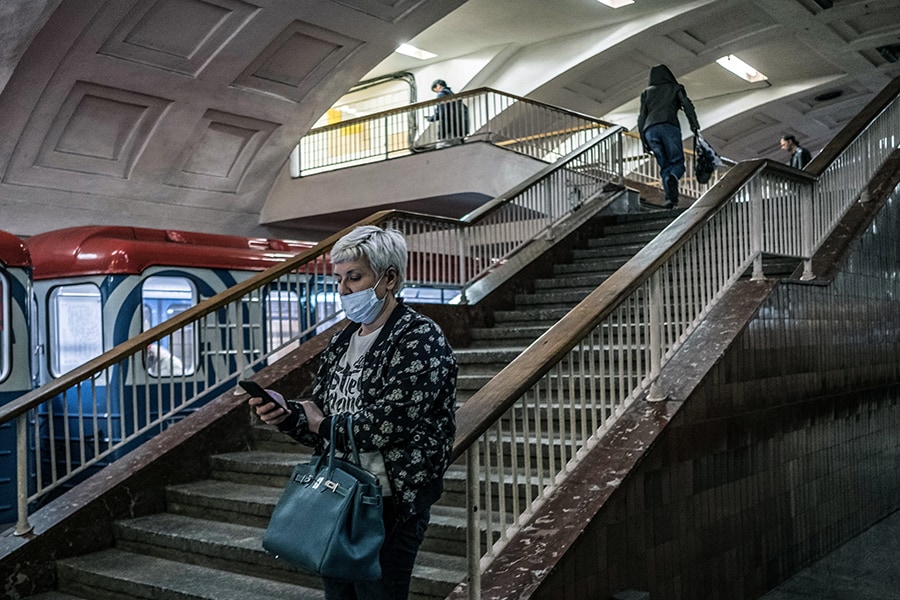
Blocked from global internet, Russia plunges into digital isolation
As Putin has waged war on Ukraine, a digital barricade went up between Russia and the world, with both Russian authorities and multinational internet companies builting the wall with breathtaking speed. It has ruptured an open internet that was once seen as helping to integrate Russia into the global community
 A woman checks her smartphone in a subway station in Moscow on May 7, 2020. The Russian government said Friday, Feb. 25, 2021, it was partially limiting access to Facebook for restricting some pro-Kremlin news media accounts, a move that could make it harder for Russians to share their anger over their country’s invasion of Ukraine. (The New York Times)
A woman checks her smartphone in a subway station in Moscow on May 7, 2020. The Russian government said Friday, Feb. 25, 2021, it was partially limiting access to Facebook for restricting some pro-Kremlin news media accounts, a move that could make it harder for Russians to share their anger over their country’s invasion of Ukraine. (The New York Times)
Even as President Vladimir Putin tightened his grip on Russian society over the past 22 years, small pockets of independent information and political expression remained online.
Any remnants of that are now gone.
As Putin has waged war on Ukraine, a digital barricade went up between Russia and the world. Both Russian authorities and multinational internet companies built the wall with breathtaking speed. And the moves have ruptured an open internet that was once seen as helping to integrate Russia into the global community.
TikTok and Netflix are suspending their services in the country. Facebook has been blocked. Twitter has been partially blocked and YouTube’s future is in doubt. Apple, Samsung, Microsoft, Oracle, Cisco and others have pulled back or withdrawn entirely from Russia. Even online video games like Minecraft are no longer available.
The actions have turned Russia into a walled-off digital state akin to China and Iran, which tightly control the internet and censor foreign websites and dissent. China’s internet and the Western internet have become almost completely separate over the years, with few overlapping services and little direct communication. In Iran, authorities have used internet blackouts during protests.
©2019 New York Times News Service







